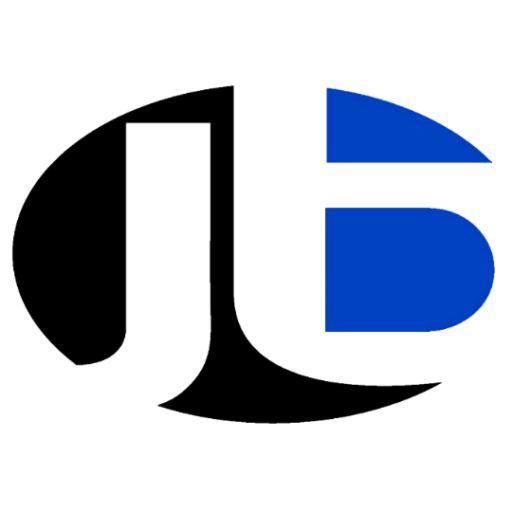Dashlane – Dashlane is a popular password manager and digital wallet application designed to help users manage their online accounts securely. It offers features such as password generation, storage, and autofill, making it easier for users to create and access complex passwords without having to remember them all. Additionally, Dashlane provides tools for secure storage of sensitive information such as credit card details, IDs, and other personal data.
Dashlane
Learn Digital Skills to Create Digital Assets for Multiple Sources of Income, Attend FREE Masterclass – Click HERE

The primary functions of Dashlane include:
-
- Password Management:
- Dashlane allows users to store an unlimited number of passwords securely in their encrypted vault. This vault is protected by a master password, which only the user knows.
- Users can generate strong, unique passwords for each of their accounts using Dashlane’s built-in password generator. These passwords are designed to be difficult for hackers to guess, enhancing overall account security.
- The application organizes passwords neatly, categorizing them by websites, apps, and other services for easy access.
- Users can also manually add passwords to their vault, allowing them to store credentials for various types of accounts, including social media, email, banking, and more.
- Autofill:
- Dashlane’s autofill feature makes logging into websites and apps a breeze. When users visit a website or open an app where they have saved login credentials, Dashlane automatically fills in the username and password fields.
- This saves time and effort for users, eliminating the need to type in usernames and passwords manually each time they log in.
- Dashlane can also autofill other types of forms, such as shipping and billing addresses, credit card information, and personal details, further streamlining online interactions.
- Digital Wallet:
- In addition to passwords, Dashlane provides a secure digital wallet where users can store sensitive information such as credit card numbers, bank account details, passport information, and more.
- This information is encrypted and protected by the user’s master password, ensuring that it remains safe from unauthorized access.
- Dashlane’s digital wallet facilitates secure online transactions by allowing users to quickly and securely fill in payment and personal details during checkout processes on websites and apps.
- Security Alerts:
- Dashlane actively monitors the web for potential security breaches and alerts users if any of their accounts may have been compromised.
- These security alerts notify users of potential threats to their online accounts, such as data breaches or leaked passwords.
- When Dashlane detects a security issue, it prompts users to take action, such as changing passwords or enabling two-factor authentication, to enhance account security.
- Cross-Platform Compatibility:
- Dashlane is available across multiple platforms, including desktop operating systems (Windows, macOS), mobile devices (iOS, Android), and web browsers (Chrome, Firefox, Safari, Edge).
- Users can access their Dashlane vault and use its features seamlessly across all of their devices, ensuring consistent password management and secure access to their accounts wherever they go.
- Password Management:
Overall, Dashlane aims to simplify and enhance online security by providing a centralized platform for managing passwords and sensitive information across multiple devices and platforms.
Overview of Dashlane’s Evolution:
Learn Digital Skills to Create Digital Assets for Multiple Sources of Income, Attend FREE Masterclass – Click HERE
Founding and Initial Release:
Dashlane was founded on July 6, 2009, with a vision to simplify online security and enhance user privacy. Their first software was launched on May 23, 2012. Initially, the primary feature of Dashlane was its password manager, which utilized AES-256 encryption to secure user credentials. This password manager served as a centralized vault for storing and managing passwords, accessible only via a single master password.
Expansion of Features:
As Dashlane gained traction and user feedback poured in, the company expanded its offerings by introducing additional features:
1. Multi-factor Authentication:
To bolster account security, Dashlane introduced multi-factor authentication (MFA), providing users with an extra layer of protection beyond just the master password. MFA typically involves a combination of something the user knows (like a password) and something they have (like a smartphone or hardware token).
2. Automatic Form Filling:
Recognizing the need for convenience in online interactions, Dashlane incorporated automatic form filling functionality. This feature enabled users to save time by automatically populating web forms with their personal information, such as name, address, and payment details.
3. Password Generation:
To encourage users to adopt strong, unique passwords for each of their accounts, Dashlane implemented a password generation tool. This tool automatically creates complex, randomized passwords that are difficult for hackers to guess, thereby enhancing overall account security.
4. Digital Wallet:
Understanding the importance of securely managing sensitive information beyond just passwords, Dashlane introduced a digital wallet feature. This feature allowed users to store and manage various types of sensitive data, including credit card numbers, bank account details, and personal identification documents.
5. Security Breach Alerts:
In an effort to keep users informed about potential security threats, Dashlane implemented security breach alerts. These alerts notify users if their accounts may have been compromised due to data breaches or other security incidents, prompting them to take action to secure their accounts.
6. Virtual Private Network (VPN):
Expanding beyond traditional password management and security features, Dashlane ventured into the realm of online privacy by offering a virtual private network (VPN). A VPN encrypts internet traffic and routes it through secure servers, enhancing user privacy and security, especially when connecting to public Wi-Fi networks.
Can Dashlane be trusted?
Learn Digital Skills to Create Digital Assets for Multiple Sources of Income, Attend FREE Masterclass – Click HERE
As with any service that deals with sensitive information, whether or not Dashlane can be trusted depends on various factors, including its security measures, privacy policies, and track record.
Here are some aspects to consider when evaluating whether Dashlane can be trusted:
- Security Measures: Dashlane claims to use strong encryption (AES-256) to protect user data stored in its vault. Additionally, it employs various security measures such as multi-factor authentication and security breach alerts to enhance account security. However, no system is completely immune to attacks, so it’s essential to stay informed about any security incidents or vulnerabilities that may affect Dashlane.
- Privacy Policies: It’s crucial to review Dashlane’s privacy policies to understand how they collect, store, and use your personal information. Pay attention to whether they share your data with third parties and under what circumstances.
- Track Record: Research Dashlane’s track record and reputation within the cybersecurity community. Look for any past security incidents or breaches and how they were handled by the company.
- User Reviews and Recommendations: Consider reading user reviews and recommendations from other individuals who have used Dashlane. This can provide insight into their experiences with the service, including its reliability and security.
- Compliance and Certifications: Check if Dashlane complies with industry standards and regulations related to data security and privacy. Certifications or audits from reputable third-party organizations can also provide reassurance regarding the trustworthiness of the service.
Ultimately, whether Dashlane can be trusted depends on your individual risk tolerance and security needs. It’s essential to weigh the benefits of using a password manager like Dashlane against any potential risks and to stay informed about the latest developments in cybersecurity.
What is Dashlane used for?
Learn Digital Skills to Create Digital Assets for Multiple Sources of Income, Attend FREE Masterclass – Click HERE
Dashlane is primarily used as a password manager and digital wallet application. Here are its main purposes:
- Password Management: Dashlane helps users securely store and manage their passwords for various online accounts. It allows users to generate strong, unique passwords for each account and store them in an encrypted vault. With Dashlane, users no longer need to remember multiple passwords or use weak, easily guessable ones.
- Autofill: Dashlane streamlines the login process by automatically filling in username and password fields on websites and apps. This feature saves time and eliminates the need to type in credentials manually each time a user logs in.
- Digital Wallet: Dashlane provides a secure platform for storing sensitive information such as credit card details, bank account information, personal identification documents, and more. Users can securely access this information when making online purchases or filling out forms.
- Security Breach Alerts: Dashlane monitors the web for potential security breaches and alerts users if any of their accounts may have been compromised. This feature helps users take timely action to secure their accounts and prevent unauthorized access.
- Password Generation: Dashlane offers a password generation tool that creates strong, randomized passwords for users’ accounts. These passwords are difficult for hackers to guess, thereby enhancing overall account security.
- Multi-factor Authentication: Dashlane supports multi-factor authentication (MFA), providing users with an extra layer of security beyond just the master password. MFA typically involves a combination of something the user knows (e.g., a password) and something they have (e.g., a smartphone or hardware token).
Overall, Dashlane is used to simplify and enhance online security by providing users with a convenient, centralized platform for managing passwords and sensitive information across various devices and platforms.
Is Dashlane still free?
Learn Digital Skills to Create Digital Assets for Multiple Sources of Income, Attend FREE Masterclass – Click HERE
As of my last update in January 2024, Dashlane offers both free and premium versions of its service. However, the availability of specific features in the free version may have changed since then, as companies often update their pricing and features over time.
Typically, free versions of password managers like Dashlane offer basic functionality such as password storage and autofill, while premium versions may include additional features such as secure cloud backup, multi-device syncing, priority support, and more advanced security options.
To get the most accurate and up-to-date information on Dashlane’s pricing and feature offerings, I recommend visiting Dashlane’s official website or contacting their customer support directly. They can provide you with the latest details on their free and premium plans, including any changes that may have occurred since my last update.
What are the disadvantages of Dashlane?
Learn Digital Skills to Create Digital Assets for Multiple Sources of Income, Attend FREE Masterclass – Click HERE
While Dashlane offers many benefits as a password manager and digital wallet, it’s important to consider potential disadvantages as well. Here are some drawbacks or limitations of Dashlane:
- Cost: While Dashlane offers a free version with basic features, some of its more advanced features are only available with a premium subscription. This may deter users who are not willing to pay for additional features beyond basic password management.
- Internet Connection Requirement: Dashlane relies on an internet connection to sync data across devices and access its features. If you’re in an area with limited or no internet access, you may not be able to use Dashlane effectively.
- Dependency on Master Password: Since Dashlane encrypts user data using a master password, forgetting this password can result in losing access to all stored passwords and sensitive information. Users must remember or securely store their master password to prevent being locked out of their accounts.
- Limited Browser Support: While Dashlane supports major web browsers like Chrome, Firefox, Safari, and Edge, its compatibility with less common or older browsers may be limited. This could be inconvenient for users who prefer to use alternative browsers.
- Security Concerns: Although Dashlane emphasizes its security features, no system is entirely immune to vulnerabilities or breaches. Users must trust Dashlane to securely store and manage their sensitive information, which may be a concern for those wary of third-party services.
- User Interface Complexity: Some users may find Dashlane’s user interface overwhelming or complex, especially if they’re not familiar with password managers or digital wallet applications. Navigating through various features and settings may require a learning curve for new users.
- Compatibility Issues: Dashlane’s integration with certain websites or applications may encounter compatibility issues, leading to autofill or form filling not working correctly. Users may need to manually adjust settings or find workarounds to address compatibility issues.
- Data Privacy Concerns: While Dashlane claims to prioritize user privacy, storing sensitive information in a cloud-based service may raise privacy concerns for some users. Additionally, users should carefully review Dashlane’s privacy policies to understand how their data is collected, stored, and used.
Overall, while Dashlane offers many benefits in terms of password management and online security, users should carefully consider these potential disadvantages and evaluate whether Dashlane meets their specific needs and preferences.
Top 20 FAQs about Dashlane
- What is Dashlane?
- Dashlane is a password manager and digital wallet application that helps users securely store and manage their passwords, payment information, and other sensitive data.
- How does Dashlane work?
- Dashlane works by storing encrypted copies of your passwords and other sensitive information in a secure vault, accessible only with a master password. It also provides features such as autofill and password generation to simplify online interactions.
- Is Dashlane free?
- Dashlane offers both free and premium versions of its service. The free version includes basic password management features, while premium plans offer additional functionality such as syncing across devices and priority support.
- Is Dashlane safe to use?
- Dashlane employs strong encryption and security measures to protect user data. However, no system is entirely immune to risks, so users should follow best practices for online security and privacy.
- Can Dashlane be trusted?
- Trust in Dashlane depends on factors such as its security measures, privacy policies, track record, and user reviews. Users should evaluate these aspects to determine whether Dashlane meets their trust criteria.
- How do I download Dashlane?
- You can download Dashlane from its official website or app stores for various platforms, including Windows, macOS, iOS, and Android.
- Is Dashlane available for mobile devices?
- Yes, Dashlane offers mobile apps for both iOS and Android devices, allowing users to access their passwords and other information on the go.
- Does Dashlane work on multiple devices?
- Yes, Dashlane syncs data across multiple devices, allowing users to access their passwords and other information from any device where Dashlane is installed.
- What browsers does Dashlane support?
- Dashlane supports major web browsers such as Chrome, Firefox, Safari, and Edge, among others.
- Can Dashlane generate passwords?
- Yes, Dashlane includes a password generation tool that creates strong, randomized passwords for users’ accounts.
- Can Dashlane autofill forms?
- Yes, Dashlane can automatically fill in login credentials and other forms on websites and apps, streamlining the login and checkout processes.
- Does Dashlane offer multi-factor authentication (MFA)?
- Yes, Dashlane supports multi-factor authentication (MFA), providing users with an extra layer of security beyond just the master password.
- What is Dashlane’s digital wallet used for?
- Dashlane’s digital wallet allows users to securely store and manage sensitive information such as credit card details, bank account information, and personal identification documents.
- How does Dashlane notify users of security breaches?
- Dashlane monitors the web for potential security breaches and alerts users if any of their accounts may have been compromised due to data breaches or other security incidents.
- Can I use Dashlane offline?
- While Dashlane requires an internet connection for certain features like syncing across devices, users can still access their stored passwords and information offline.
- What happens if I forget my Dashlane master password?
- Forgetting the master password can result in losing access to all stored passwords and sensitive information. Dashlane does not have access to your master password, so it’s essential to remember or securely store it.
- Is Dashlane’s source code available?
- Yes, the source code for Dashlane’s Android and iOS apps is available under the Creative Commons NonCommercial license 4.0.
- Can I use Dashlane for business?
- Yes, Dashlane offers business plans tailored to the needs of organizations, providing features such as centralized administration and team sharing.
- Does Dashlane offer customer support?
- Yes, Dashlane provides customer support to assist users with any questions or issues they may encounter while using the service.
- How do I cancel my Dashlane subscription?
- Users can cancel their Dashlane subscription through their account settings on the Dashlane website or by contacting customer support for assistance.




